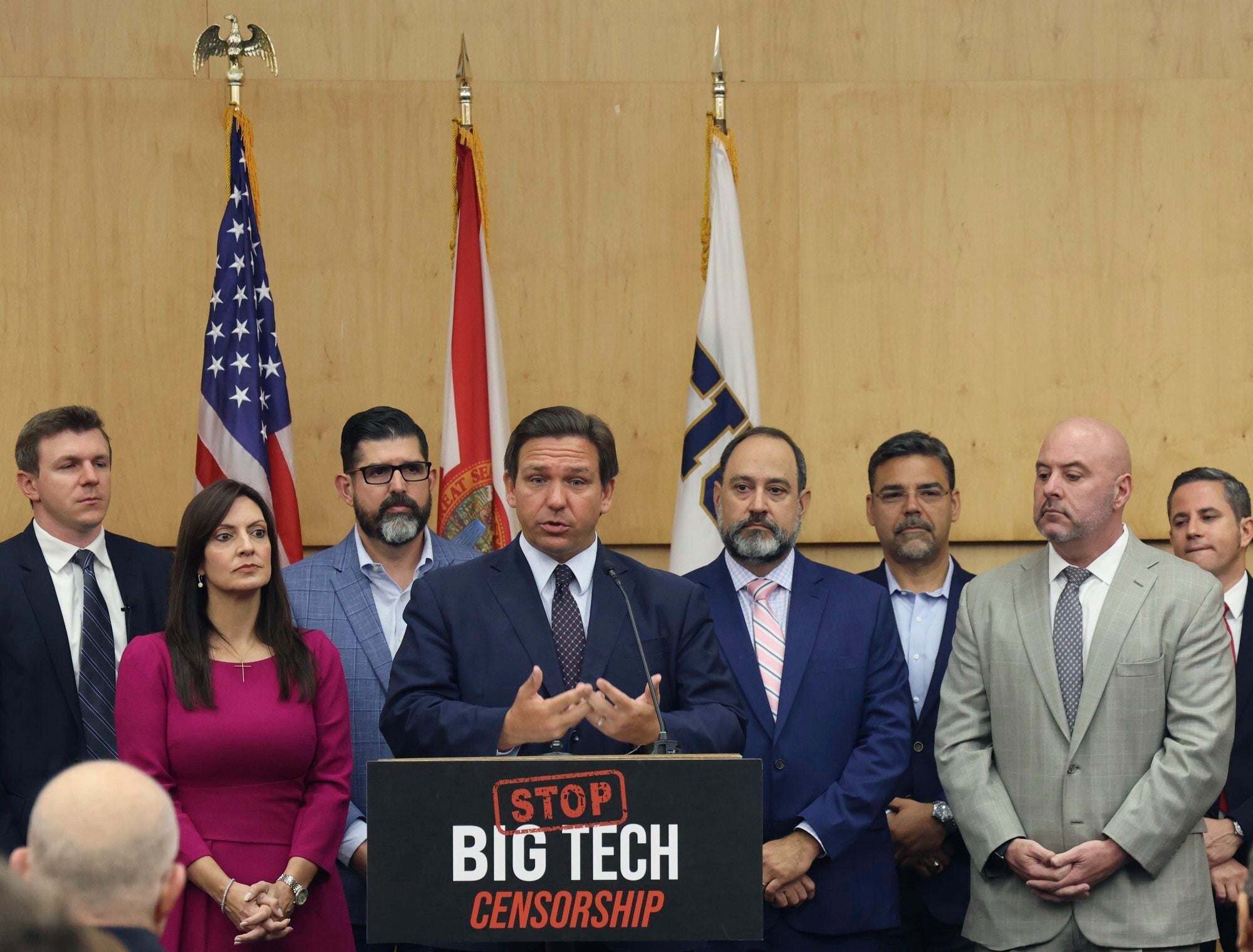Florida law seeks to rein in large social media companies
Standing at a lectern with a sign reading “STOP BIG TECH CENSORSHIP,” Republican Florida Gov. Ron DeSantis has signed a measure that seeks to punish social media platforms that remove conservative ideas from their sites

Standing at a lectern with a sign reading “STOP BIG TECH CENSORSHIP," Republican Florida Gov. Ron DeSantis signed a bill on Monday that seeks to punish social media platforms that remove conservative ideas from their sites.
The new law will enable the state to fine large social media companies $250,000 a day if they remove an account of a statewide political candidate, and $25,000 a day if they remove an account of someone running for a local office. It takes effect July 1.
“Some of these massive, massive companies in Silicon Valley are exerting a power over our population that really has no precedent in American history,” DeSantis said during a bill-signing ceremony at Florida International University in Miami. “One of their major missions seems to be suppressing ideas.”
But it’s questionable whether Florida will be able to enforce it. Federal law prevents internet companies from being sued for removing posts and federal law trumps state law when there is a conflict.
Section 230 of the Communications Decency Act exempts websites from being sued for removing content deemed to be “obscene, lewd, lascivious, filthy, excessively violent, harassing, or otherwise objectionable” as long as the companies are acting in “good faith.”
DeSantis said big tech companies are controlling accounts to remove content that doesn't suit their ideology. Republicans have accused companies like Twitter and Facebook of censoring conservative thought. DeSantis pointed in particular to then-President Donald Trump being banned by Twitter while still allowing Iranian supreme leader Ayatollah Ali Khamenei to maintain an account.
“When you de-platform the president of the United States but you let Ayatollah Khamenei talk about killing Jews, that is wrong,” DeSantis said to thunderous applause.
Twitter and Facebook didn't immediately respond to requests for comment.
The law will give Florida's attorney general authority to sue companies under the state’s Deceptive and Unfair Trade Practices Act. It will also allow individual Floridians to sue social media companies for up to $100,000 if they feel they've been treated unfairly.
The bill targets social media platforms that have more than 100 million monthly users, which include online giants as Twitter and Facebook. But lawmakers carved out an exception for Disney and their apps by including that theme park owners wouldn’t be subject to the law.
The law will require large social media companies to publish standards on how it decides to “censor, deplatform, and shadow ban.”
Regardless of the federal law, the new Florida law is constitutionally flawed, said Communications and Computer Industry Association President Matt Schruers.
“Gov. DeSantis says that this bill is about protecting free expression, but an internet service saying, ‘We don’t want to host Nazis and people encouraging self-harm' is exercising its own First Amendment rights and that is one of the critical infirmities of this bill,” Schruers said.
Democrats opposed the bill and defended the right of social media companies, as private entities, to control the flow of information on their platforms. Democratic Sen. Audrey Gibson said in a press release that the bill was passed in an effort to placate Trump.
“These enterprises take responsibility for what appears on their platforms and have the right to do so,” Gibson said. “Vulgarity and inciting violence are not their business model and our legislature should appreciate rather than legislate against such a concept.”
While similar bills have been filed in other states, DeSantis is the first governor to sign one into law.
___
AP Technology Writer Barbara Ortutay contributed to this report.
Bookmark popover
Removed from bookmarks